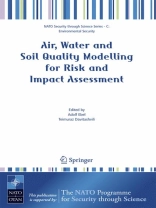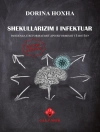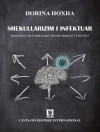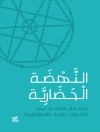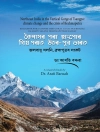This book contains the proceedings of the NATO Advanced Research Workshop on Air, Water and Soil Quality Modelling for Risk and Impact Assessment. The aim of the workshop was to further joint environmental compartment modelling and applications of control theory to environmental management. It provides an overview of ongoing research in this field regarding assessment of environmental risks and impacts.
Table des matières
Preface.- Risk and Emergency Modelling for Environmental Security: General Aspects; C. Borrego, J.H. Amorim.- Variational Technique for Environmental Risk/Vulnerability Assessment and Control; V. Penenko, E. Tsvetova.- Environmental Risk and Assessment Modelling – Scientific Needs and Expected Advancements; A. Baklanov.- Control Theory and Environmental Risk Assessment; A.E. Aloyan, V.O. Arutyunyan.- Air Quality Models for Risk Assessment and Emergency Preparedness – Integration into Control Networks; R. San Jose et al.- Integrated Assessment Modelling: Applications of the Impact Pathway Methodology; C. Mensink et al.- Advanced Air Pollution Models and their Application to Risk and Impact Assessment; A. Ebel et al.- Dispersion Modelling of Atmospheric Contaminants Resulting from Terrorist Attacks and Accidental Releases in Urban Areas; A.M. Costa et al.- A Multiphase Model to Assess the Effectiveness of Emission Control Scenarios; G. Finzi et al.- Assessment of Long-Range Transport and Deposition from Cu-Ni Smelters in Russian North; A. Mahura et al.- Assessment of the Impact of Industrial Sources on Urban Air Quality in Tashkent; L. Yu. Shardakova, L.V. Usmanova.- Developing Technical Approaches to Man-Caused Risk Estimation for the Krasnoyarsk Region; A. Tridvornov et al.- Modeling Air Quality and Deposition of Trace Elements in the Vicinity of a Cement Plant for Human Health Risk Assessment; H. Ali-Khodja, L. Aouragh.- Source Reconstruction for Accidental Releases of Radionuclides; M. Krysta et al.- Atmospheric Convection over Complex Terrain and Urban Canopy: Non-Local Ventilation Mechanisms and Application to Pollution-Dispersion and Air-Quality Problems; S.S. Zilitinkevich et al.- Factor Separation in Atmospheric Modelling – A Review; T. Sholokhman, P. Alpert.- Mathematical Modelling of Dynamical and Ecological Processes in the System Sea-Land-Atmosphere; A. Kordzadze.- Mathematical Modelling and Numerical Solution of Some Problems of Water and Atmosphere Pollution; D. Gordeziani, E. Gordeziani.- Application of Integral Indices to the Assessment of Ecological Risks and Damages; I. Bashmakova, S. Levikov.- Use of Benthic Invertebrates as Indicators of Pollution Origin in Agricultural and Urban Areas; K. Jenderedjian et al.- Analytical and Numerical Modeling of Physical and Chemical Processes in the Vadose Zone; J. Simunek.- Interpolation and Update in Dynamic Data-Driven Application Simulations; C.C. Douglas et al.- Oil Infiltration into Soil: Problems of the Georgian Section of Traceca and their Numerical Treatment; T. Davitashvili.- Modelling of Dam-Break Sediment Flows; J.M. Silva.- Identifying Changes in Soil Quality: Contamination and Organic Matter Decline; P.H. Bellamy, R.J.A. Jones.- Effect of a Hazardous Waste Landfill Area on Groundwater Quality; S.T. Gunes, A. Turkman.- Computational and Numerical Background of the Unified Danish Eulerian Model; Z. Zlatev.- Finite Volume Schemes on Cubed Sphere; R. Botchorishvili.- Chemical Weather Analysis Optimisation with Emission Impact Estimation Using Nested Four-Dimensional Variational Chemistry Data Assimilation; H. Elbern, A. Strunk.- Optimization Problems of Algorithms Connected with Different Calculation Schemes of Difference Equations; K. Kachiashvili, D.I. Melikdzhanian.- Control Theory and Models (Working Group 1); V. Penenko et al.- Integrated Modelling and Applications (Working Group 2); C. Mensink.- Environmental Modelling for Security: Future Needs and Development of Computer Networking, Numerics and Algorithms (Working Group 3); Z. Zlatev et al.- List of Participants and Members of the Scientific Committee.- Subject Index.-
